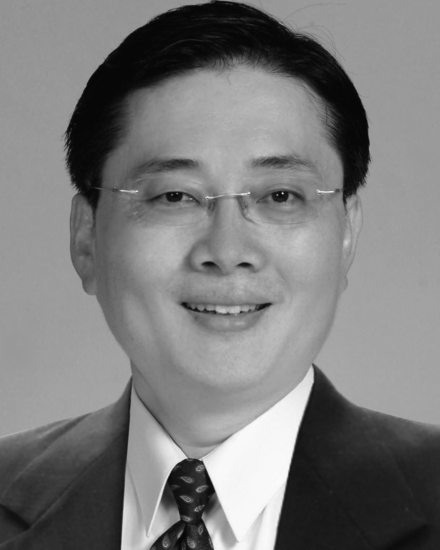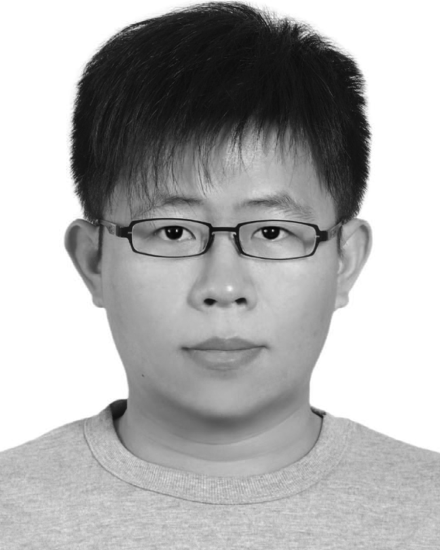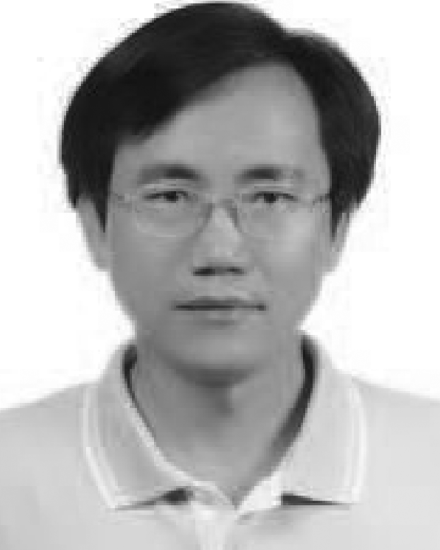Abstract:
With the rapid development of the Internet and the popularization of mobile devices, participating in a mobile community becomes a part of daily life. This study aims the...Show MoreMetadata
Abstract:
With the rapid development of the Internet and the popularization of mobile devices, participating in a mobile community becomes a part of daily life. This study aims the influence impact of social interactions on mobile learning communities. With m-learning content recommendation services developed from mobile devices and mobile network techniques, learners can generate the learning stickiness by active participation and two-way interaction within a mobile learning community. Individual learning content is able to be recommended according to the behavioral characteristics of the response message of individual learners in the community, and other browsers not of this community are attracted to participate in the learning content with the proposed recommendation service. Finally, as the degree of devotion to the community and learning time increases, the learners’ willingness to continue learning increases. The experiment results and analysis show that individualized learning content recommendation results in better learning effect. In addition, the proposed service proved that the experiment results can be easily extended to handle the recommended learning content for learners’ time-varying interests.
Published in: IEEE Transactions on Learning Technologies ( Volume: 7, Issue: 3, 01 July-Sept. 2014)
Funding Agency:

Institute of Computer Science and Information Engineering, National Ilan University, ILan, Taiwan
Han-Chieh Chao
received the MS and PhD degrees in electrical engineering from Purdue University in 1989 and 1993, respectively. He
is a jointly appointed full professor in the Department of Electronic Engineering and Institute of Computer Science
& Information Engineering, where he also serves as the president of National Ilan University, I-Lan, Taiwan,
R.O.C. He has been appointed as the director of the Computer Center...Show More
Han-Chieh Chao
received the MS and PhD degrees in electrical engineering from Purdue University in 1989 and 1993, respectively. He
is a jointly appointed full professor in the Department of Electronic Engineering and Institute of Computer Science
& Information Engineering, where he also serves as the president of National Ilan University, I-Lan, Taiwan,
R.O.C. He has been appointed as the director of the Computer Center...View more

Department of Computer Science and Information Engineering, National Chung Cheng University, Chiayi, Taiwan
Chin-Feng Lai
received the PhD degree from the Department of Engineering Science, the National Cheng Kung University, Taiwan, in
2008. Since 2013, he has been an associate professor in the Department of Computer Science and Information
Engineering, National Chung Cheng University. His research interests include multimedia communications, sensor-based
healthcare and embedded systems. After receiving the PhD degree, he ha...Show More
Chin-Feng Lai
received the PhD degree from the Department of Engineering Science, the National Cheng Kung University, Taiwan, in
2008. Since 2013, he has been an associate professor in the Department of Computer Science and Information
Engineering, National Chung Cheng University. His research interests include multimedia communications, sensor-based
healthcare and embedded systems. After receiving the PhD degree, he ha...View more

Department of Engineering Science, National Cheng Kung University, Tainan, Taiwan
Shih-Yeh Chen
received the MS degree in Master’s Program of E-Learning, Taipei Municipal University of Education, Taipei,
Taiwan, in 2012. He is currently working toward the PhD degree in engineering science from National Cheng Kung
University, Tainan, Taiwan. His main research interests include e-learning education, social interactions, and mobile
networking.
Shih-Yeh Chen
received the MS degree in Master’s Program of E-Learning, Taipei Municipal University of Education, Taipei,
Taiwan, in 2012. He is currently working toward the PhD degree in engineering science from National Cheng Kung
University, Tainan, Taiwan. His main research interests include e-learning education, social interactions, and mobile
networking.View more

Department of Engineering Science, National Cheng Kung University, Tainan, Taiwan
Yueh-Min Huang
received the MS and PhD degrees in electrical engineering from the University of Arizona in 1988 and 1991,
respectively. He is a Distinguished Professor in the Department of Engineering Science, National Cheng-Kung
University, Taiwan. He was also chairing the department from 2006 to 2009. His research interests include e-Learning,
embedded systems, and artificial intelligence. He has coedited three books ...Show More
Yueh-Min Huang
received the MS and PhD degrees in electrical engineering from the University of Arizona in 1988 and 1991,
respectively. He is a Distinguished Professor in the Department of Engineering Science, National Cheng-Kung
University, Taiwan. He was also chairing the department from 2006 to 2009. His research interests include e-Learning,
embedded systems, and artificial intelligence. He has coedited three books ...View more

Institute of Computer Science and Information Engineering, National Ilan University, ILan, Taiwan
Han-Chieh Chao
received the MS and PhD degrees in electrical engineering from Purdue University in 1989 and 1993, respectively. He
is a jointly appointed full professor in the Department of Electronic Engineering and Institute of Computer Science
& Information Engineering, where he also serves as the president of National Ilan University, I-Lan, Taiwan,
R.O.C. He has been appointed as the director of the Computer Center for Ministry of Education starting from September
2008 to July 2010. His research interests include high-speed networks, wireless networks, IPv6-based networks, digital
creative arts, and digital divide. He has authored or coauthored four books and has published about 280 refereed
professional research papers. He has completed 100 MSEE thesis students and three PhD students. He has received many
research awards, including Purdue University SRC awards, and National Science Council of Taiwan (NSC) research awards.
He also received many funded research grants from NSC, Ministry of Education (MOE), RDEC, Industrial Technology of
Research Institute, Institute of Information Industry, and FarEasTone Telecommunications Lab. He has been invited
frequently to give talks at national and international conferences and research organizations. He is the
editor-in-chief for IET Networks, Journal of Internet Technology, International Journal of Internet Protocol
Technology, and International Journal of Ad Hoc and Ubiquitous Computing. He has served as the guest editors
for Mobile Networking and Applications (ACM MONET), IEEE JSAC, IEEE Communications Magazine, Computer
Communications, IEE Proceedings Communications, the Computer Journal, Telecommunication Systems, Wireless Personal
Communications, and Wireless Communications & Mobile Computing. He is a senior member of the IEEE and a
fellow of the IET (IEE). He is a chartered fellow of British Computer Society.
Han-Chieh Chao
received the MS and PhD degrees in electrical engineering from Purdue University in 1989 and 1993, respectively. He
is a jointly appointed full professor in the Department of Electronic Engineering and Institute of Computer Science
& Information Engineering, where he also serves as the president of National Ilan University, I-Lan, Taiwan,
R.O.C. He has been appointed as the director of the Computer Center for Ministry of Education starting from September
2008 to July 2010. His research interests include high-speed networks, wireless networks, IPv6-based networks, digital
creative arts, and digital divide. He has authored or coauthored four books and has published about 280 refereed
professional research papers. He has completed 100 MSEE thesis students and three PhD students. He has received many
research awards, including Purdue University SRC awards, and National Science Council of Taiwan (NSC) research awards.
He also received many funded research grants from NSC, Ministry of Education (MOE), RDEC, Industrial Technology of
Research Institute, Institute of Information Industry, and FarEasTone Telecommunications Lab. He has been invited
frequently to give talks at national and international conferences and research organizations. He is the
editor-in-chief for IET Networks, Journal of Internet Technology, International Journal of Internet Protocol
Technology, and International Journal of Ad Hoc and Ubiquitous Computing. He has served as the guest editors
for Mobile Networking and Applications (ACM MONET), IEEE JSAC, IEEE Communications Magazine, Computer
Communications, IEE Proceedings Communications, the Computer Journal, Telecommunication Systems, Wireless Personal
Communications, and Wireless Communications & Mobile Computing. He is a senior member of the IEEE and a
fellow of the IET (IEE). He is a chartered fellow of British Computer Society.View more

Department of Computer Science and Information Engineering, National Chung Cheng University, Chiayi, Taiwan
Chin-Feng Lai
received the PhD degree from the Department of Engineering Science, the National Cheng Kung University, Taiwan, in
2008. Since 2013, he has been an associate professor in the Department of Computer Science and Information
Engineering, National Chung Cheng University. His research interests include multimedia communications, sensor-based
healthcare and embedded systems. After receiving the PhD degree, he has authored/coauthored more than 100 refereed
papers in journals, conference, and workshop proceedings about his research areas within four years. He is currently
making efforts to publish his latest research in the IEEE Transactions on Multimedia and the
IEEE Transactions on Circuit and System on Video Technology. He is also a senior member of the IEEE as well as
IEEE Circuits and Systems Society and IEEE Communication Society.
Chin-Feng Lai
received the PhD degree from the Department of Engineering Science, the National Cheng Kung University, Taiwan, in
2008. Since 2013, he has been an associate professor in the Department of Computer Science and Information
Engineering, National Chung Cheng University. His research interests include multimedia communications, sensor-based
healthcare and embedded systems. After receiving the PhD degree, he has authored/coauthored more than 100 refereed
papers in journals, conference, and workshop proceedings about his research areas within four years. He is currently
making efforts to publish his latest research in the IEEE Transactions on Multimedia and the
IEEE Transactions on Circuit and System on Video Technology. He is also a senior member of the IEEE as well as
IEEE Circuits and Systems Society and IEEE Communication Society.View more

Department of Engineering Science, National Cheng Kung University, Tainan, Taiwan
Shih-Yeh Chen
received the MS degree in Master’s Program of E-Learning, Taipei Municipal University of Education, Taipei,
Taiwan, in 2012. He is currently working toward the PhD degree in engineering science from National Cheng Kung
University, Tainan, Taiwan. His main research interests include e-learning education, social interactions, and mobile
networking.
Shih-Yeh Chen
received the MS degree in Master’s Program of E-Learning, Taipei Municipal University of Education, Taipei,
Taiwan, in 2012. He is currently working toward the PhD degree in engineering science from National Cheng Kung
University, Tainan, Taiwan. His main research interests include e-learning education, social interactions, and mobile
networking.View more

Department of Engineering Science, National Cheng Kung University, Tainan, Taiwan
Yueh-Min Huang
received the MS and PhD degrees in electrical engineering from the University of Arizona in 1988 and 1991,
respectively. He is a Distinguished Professor in the Department of Engineering Science, National Cheng-Kung
University, Taiwan. He was also chairing the department from 2006 to 2009. His research interests include e-Learning,
embedded systems, and artificial intelligence. He has coedited three books published by Springer Verlag and has
published more than 180 refereed journal papers. He has received many research awards, for instance, in recent three
years, such as the Best Paper Award of HumanCom 2010, ICS2009, TANET2009 and the distinguished research award from the
National Science Council, Taiwan in 2010. He is in the editorial board of over 10 SSCI- and SCI-indexed journals such
as Interactive Learning Environments, Wireless Communications and Mobile Computing, Journal of Internet
Technology, International Journal of Communication Systems, International Journal of Ad Hoc and Ubiquitous Computing
, etc. He was the technical program chair of ACM MDLT2009, ICWL (2013). He was the general chair of VIP2007,
IEEE EPSA2008, PCM2008, ICST2008, ICS2010, AECT-Taiwan-Symposium2013, HumanCom2013. He is a fellow of British Computer
Society (FBCS) and a senior member of the IEEE.
Yueh-Min Huang
received the MS and PhD degrees in electrical engineering from the University of Arizona in 1988 and 1991,
respectively. He is a Distinguished Professor in the Department of Engineering Science, National Cheng-Kung
University, Taiwan. He was also chairing the department from 2006 to 2009. His research interests include e-Learning,
embedded systems, and artificial intelligence. He has coedited three books published by Springer Verlag and has
published more than 180 refereed journal papers. He has received many research awards, for instance, in recent three
years, such as the Best Paper Award of HumanCom 2010, ICS2009, TANET2009 and the distinguished research award from the
National Science Council, Taiwan in 2010. He is in the editorial board of over 10 SSCI- and SCI-indexed journals such
as Interactive Learning Environments, Wireless Communications and Mobile Computing, Journal of Internet
Technology, International Journal of Communication Systems, International Journal of Ad Hoc and Ubiquitous Computing
, etc. He was the technical program chair of ACM MDLT2009, ICWL (2013). He was the general chair of VIP2007,
IEEE EPSA2008, PCM2008, ICST2008, ICS2010, AECT-Taiwan-Symposium2013, HumanCom2013. He is a fellow of British Computer
Society (FBCS) and a senior member of the IEEE.View more

